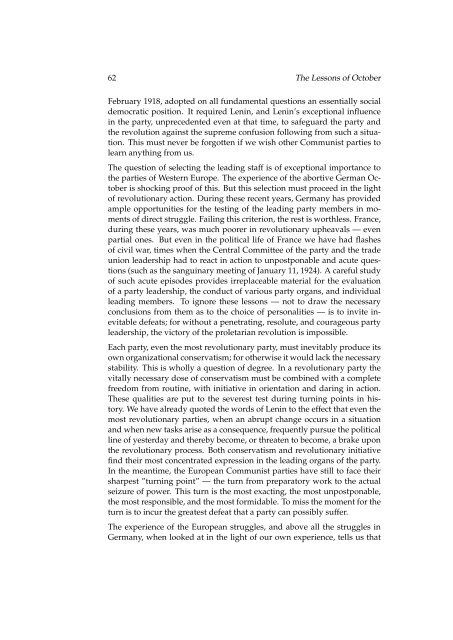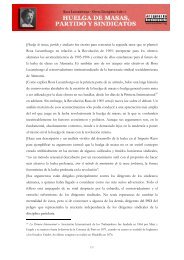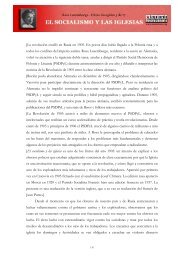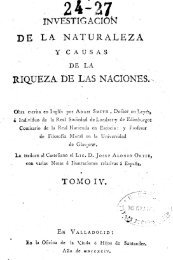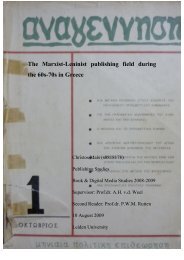Leon Trotsky, The Lessons of October - Platypus
Leon Trotsky, The Lessons of October - Platypus
Leon Trotsky, The Lessons of October - Platypus
Create successful ePaper yourself
Turn your PDF publications into a flip-book with our unique Google optimized e-Paper software.
62 <strong>The</strong> <strong>Lessons</strong> <strong>of</strong> <strong>October</strong>February 1918, adopted on all fundamental questions an essentially socialdemocratic position. It required Lenin, and Lenin’s exceptional influencein the party, unprecedented even at that time, to safeguard the party andthe revolution against the supreme confusion following from such a situation.This must never be forgotten if we wish other Communist parties tolearn anything from us.<strong>The</strong> question <strong>of</strong> selecting the leading staff is <strong>of</strong> exceptional importance tothe parties <strong>of</strong> Western Europe. <strong>The</strong> experience <strong>of</strong> the abortive German <strong>October</strong>is shocking pro<strong>of</strong> <strong>of</strong> this. But this selection must proceed in the light<strong>of</strong> revolutionary action. During these recent years, Germany has providedample opportunities for the testing <strong>of</strong> the leading party members in moments<strong>of</strong> direct struggle. Failing this criterion, the rest is worthless. France,during these years, was much poorer in revolutionary upheavals — evenpartial ones. But even in the political life <strong>of</strong> France we have had flashes<strong>of</strong> civil war, times when the Central Committee <strong>of</strong> the party and the tradeunion leadership had to react in action to unpostponable and acute questions(such as the sanguinary meeting <strong>of</strong> January 11, 1924). A careful study<strong>of</strong> such acute episodes provides irreplaceable material for the evaluation<strong>of</strong> a party leadership, the conduct <strong>of</strong> various party organs, and individualleading members. To ignore these lessons — not to draw the necessaryconclusions from them as to the choice <strong>of</strong> personalities — is to invite inevitabledefeats; for without a penetrating, resolute, and courageous partyleadership, the victory <strong>of</strong> the proletarian revolution is impossible.Each party, even the most revolutionary party, must inevitably produce itsown organizational conservatism; for otherwise it would lack the necessarystability. This is wholly a question <strong>of</strong> degree. In a revolutionary party thevitally necessary dose <strong>of</strong> conservatism must be combined with a completefreedom from routine, with initiative in orientation and daring in action.<strong>The</strong>se qualities are put to the severest test during turning points in history.We have already quoted the words <strong>of</strong> Lenin to the effect that even themost revolutionary parties, when an abrupt change occurs in a situationand when new tasks arise as a consequence, frequently pursue the politicalline <strong>of</strong> yesterday and thereby become, or threaten to become, a brake uponthe revolutionary process. Both conservatism and revolutionary initiativefind their most concentrated expression in the leading organs <strong>of</strong> the party.In the meantime, the European Communist parties have still to face theirsharpest ”turning point” — the turn from preparatory work to the actualseizure <strong>of</strong> power. This turn is the most exacting, the most unpostponable,the most responsible, and the most formidable. To miss the moment for theturn is to incur the greatest defeat that a party can possibly suffer.<strong>The</strong> experience <strong>of</strong> the European struggles, and above all the struggles inGermany, when looked at in the light <strong>of</strong> our own experience, tells us that


